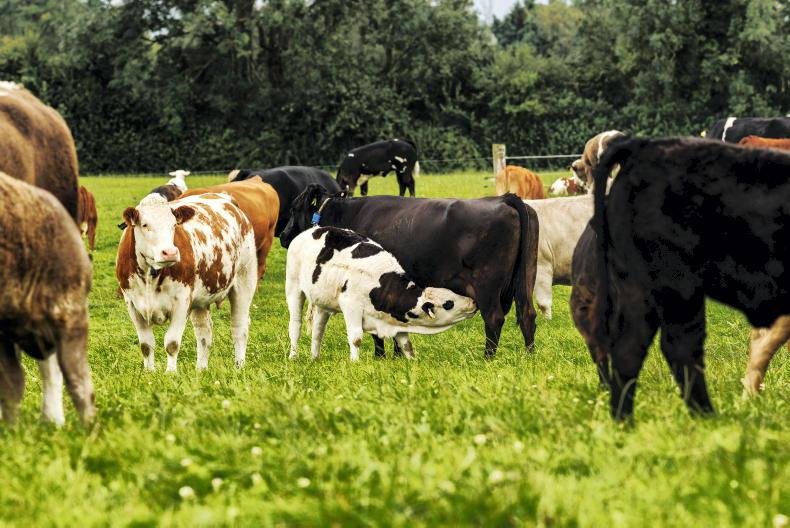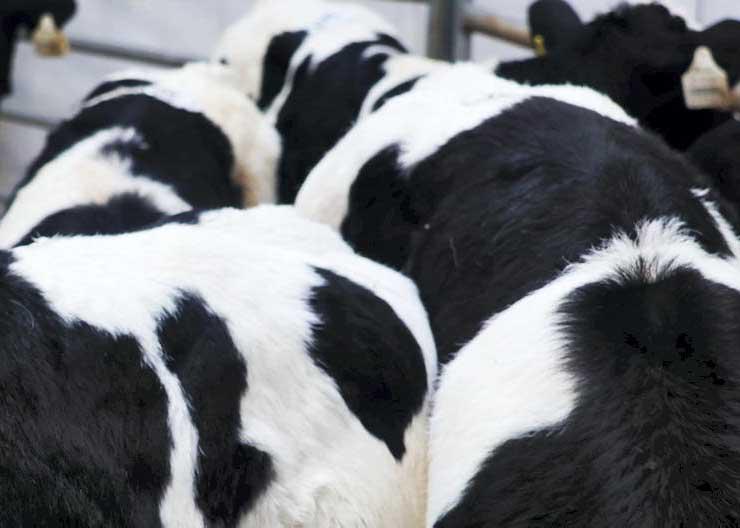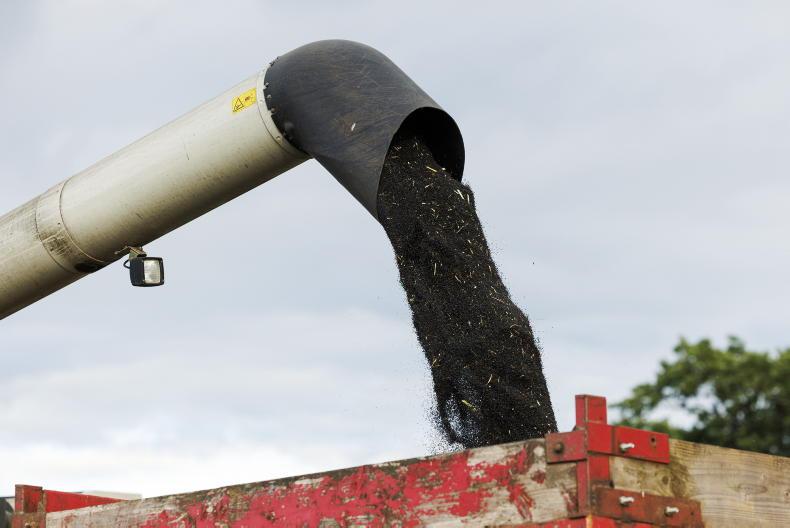A love of travel and the influence of a then university lecturer, Dr Garrett Fitzgerald who later became Taoiseach, were significant motivations for Catherine Day, applying through an open competition, to join the staff of the European Commission.
Catherine served in the cabinets of Irish Commissioners Burke and Sutherland before joining the UK commissioner Sir Leon Brittan as deputy Chef de Cabinet between 1989 and 1996.
She also served in a number of other roles before being appointed secretary general of the Commission where she continued until her retirement in 2015.
Catherine Day retains her enthusiasm for all things EU and now serves on the boards of the European Movement Ireland and the Institute of International and EU Affairs.
As might be expected from someone involved with the EU for more than four decades, Catherine has an in-depth knowledge of the development of the EU to this point, as well as clear views on its future role.
She believes that Ireland benefited greatly from EU membership. The country was transformed economically and socially in the almost 50 years since we joined.
While past benefits are visible as in improved roads, new bridges, etc, future benefits will be less physically visible but no less important.
Her view is that membership of the single market is invaluable to an open export-orientated economy like Ireland and well worth the budget contribution, now that Ireland has become a net contributor.
Throughout her time in the Commission, Catherine was very conscious of the large presence of Irish people across EU institutions. However, with enlargement and the need to recruit from the newer member states, that presence was always going to decline but she is keen that a new generation of Irish people apply to be part of the EU.
She feels that recruitment would be improved if it wasn’t just focused on Ireland as there is a large pool of Irish people working in Brussels in NGOs and lobby organisations who would make ideal candidates.
She also bemoaned the fact that so few have a second language, an essential requirement for entrance and career advancement in EU institutions.
Brexit
Six years on from the UK referendum and the decision to leave, we concluded that there was little point reheating the Brexit debate as it is now a fait accompli.
From an EU perspective, Catherine is strongly of the view that the UK is a loss because it had a “Rolls Royce Civil Service” and superb technical expertise in preparing and scrutinising policy. That is a definite loss.
From an Irish perspective, we shared the language and common law legal system with the UK and that created a natural bond.
Also, the informal engagement at a political and officials level through the EU institutions and on the margins was an excellent forum to manage Anglo-Irish issues as part of a wider, shared approach.
That is now lost and it means that relations between our two countries have to be conducted in a more formal manner in the absence of that informal engagement.
Of course, Irish and UK interests didn’t always align, with agriculture being the most common example. Here, Catherine pointed out that Ireland had much more in common with France than the UK. In terms of Ireland’s future without the UK, she believes that Ireland is sufficiently well-established in the EU to no longer be in the UK shadow.
She uses the example of EU solidarity with Ireland over the Brexit negotiation as evidence of EU commitment to Ireland. In addition, she points out that the great strength of the EU is that smaller nations are respected and have a meaningful place in shaping policy.
She is also of the view that Ireland is probably more aligned with mainland Europe than the UK on social policy.
When the UK was there, Ireland more or less rowed in behind the Anglo-Saxon model whereas we are now more likely to move towards the wider European social equality model.
Future alliances
Catherine doesn’t believe that Ireland will completely align with any group in a post-Brexit EU but will float between blocs depending on the issue.
For example, on issues like better regulation, innovation and competitiveness, the natural fit may be with Nordic countries but with agriculture, it will be France and more southern member states.
Alliances are not set in stone and very much issue driven at an EU level and the consensus model of decision-making means that every policy is a compromise.
“I don’t think you have to choose sides, and the reason that decision-making appears so slow is because a huge effort is made to get every member on board.”
She went on to say: “It has to be this way because the Commission doesn’t implement anything. It relies on member states for implementation.”
She recognises that the decision-making process may not be the nimblest but it works for what is essentially a club. A club requires consensus, not majority-based decision-making because this alienates members.
The benefit of the construction is that there is a meaningful place for small countries like Ireland that gives us a place on the world stage as part of the EU that we wouldn’t achieve otherwise
Also, she pointed out that when it comes to really important issues, members come together quickly. This was demonstrated during the pandemic and again with the Russian invasion of Ukraine where, despite huge variance between members on relations and dependence on Russia for energy, consensus has been achieved and maintained.
Next fifty years
Taking a longer view, Catherine believes that the Brexit experience has caused something of a renewal among EU members and a realisation that support can never be assumed, it has to be earned and maintained.
Her belief in the project’s longevity is a realisation by even the largest members that they are only medium-sized economies globally and that the EU creates a collective strength comparable to the powers that are the US and China.
The benefit of the construction is that there is a meaningful place for small countries like Ireland that gives us a place on the world stage as part of the EU that we wouldn’t achieve otherwise.
Catherine also believes that, in time, the EU relationship with the UK will settle down though that may be difficult to achieve during the term of the current UK government. She warns that if the UK blatantly disregards the agreement on the Northern Ireland Protocol, the EU reaction will be robust because the EU view is that an agreement that is hard fought stands, no matter what, until an amendment is agreed. Unilateral action by the UK, she believes, would trigger a robust EU response.
Whatever the short-term difficulties, the reality of geography dictates that the EU and UK will have a close relationship and the benefit of close co-operation will overcome confrontation in time. For Ireland, the skill required is to maintain a strong relationship with the UK, while adapting to the fact that our closest EU member is now France.
She points to the switch in freight to direct sailings, instead of the UK land bridge, as evidence of how countries adapt to the circumstances in which they find themselves.
Her bottom line is that the strength of the EU project is mutual dependence and collective strength and that this is why the EU is a strong supporter of global organisations such as WTO, even though other countries are not.
From an Irish perspective, she is strongly of the view that EU membership has served us well in our first half century of membership and that it will continue to do so into the future, though in a different way because we are now established as one of the wealthier members.
Ireland has benefited greatly from EU membership, but future benefits will be less visible than those in the past.Membership of the single market is invaluable to an export-orientated economy like Ireland.From an EU perspective, the absence of the UK is a loss because it provided superb technical expertise in preparing and scrutinising policy. Despite short-term difficulties, geography will dictate that the EU and UK will again have a close relationship and benefit from close co-operation.
A love of travel and the influence of a then university lecturer, Dr Garrett Fitzgerald who later became Taoiseach, were significant motivations for Catherine Day, applying through an open competition, to join the staff of the European Commission.
Catherine served in the cabinets of Irish Commissioners Burke and Sutherland before joining the UK commissioner Sir Leon Brittan as deputy Chef de Cabinet between 1989 and 1996.
She also served in a number of other roles before being appointed secretary general of the Commission where she continued until her retirement in 2015.
Catherine Day retains her enthusiasm for all things EU and now serves on the boards of the European Movement Ireland and the Institute of International and EU Affairs.
As might be expected from someone involved with the EU for more than four decades, Catherine has an in-depth knowledge of the development of the EU to this point, as well as clear views on its future role.
She believes that Ireland benefited greatly from EU membership. The country was transformed economically and socially in the almost 50 years since we joined.
While past benefits are visible as in improved roads, new bridges, etc, future benefits will be less physically visible but no less important.
Her view is that membership of the single market is invaluable to an open export-orientated economy like Ireland and well worth the budget contribution, now that Ireland has become a net contributor.
Throughout her time in the Commission, Catherine was very conscious of the large presence of Irish people across EU institutions. However, with enlargement and the need to recruit from the newer member states, that presence was always going to decline but she is keen that a new generation of Irish people apply to be part of the EU.
She feels that recruitment would be improved if it wasn’t just focused on Ireland as there is a large pool of Irish people working in Brussels in NGOs and lobby organisations who would make ideal candidates.
She also bemoaned the fact that so few have a second language, an essential requirement for entrance and career advancement in EU institutions.
Brexit
Six years on from the UK referendum and the decision to leave, we concluded that there was little point reheating the Brexit debate as it is now a fait accompli.
From an EU perspective, Catherine is strongly of the view that the UK is a loss because it had a “Rolls Royce Civil Service” and superb technical expertise in preparing and scrutinising policy. That is a definite loss.
From an Irish perspective, we shared the language and common law legal system with the UK and that created a natural bond.
Also, the informal engagement at a political and officials level through the EU institutions and on the margins was an excellent forum to manage Anglo-Irish issues as part of a wider, shared approach.
That is now lost and it means that relations between our two countries have to be conducted in a more formal manner in the absence of that informal engagement.
Of course, Irish and UK interests didn’t always align, with agriculture being the most common example. Here, Catherine pointed out that Ireland had much more in common with France than the UK. In terms of Ireland’s future without the UK, she believes that Ireland is sufficiently well-established in the EU to no longer be in the UK shadow.
She uses the example of EU solidarity with Ireland over the Brexit negotiation as evidence of EU commitment to Ireland. In addition, she points out that the great strength of the EU is that smaller nations are respected and have a meaningful place in shaping policy.
She is also of the view that Ireland is probably more aligned with mainland Europe than the UK on social policy.
When the UK was there, Ireland more or less rowed in behind the Anglo-Saxon model whereas we are now more likely to move towards the wider European social equality model.
Future alliances
Catherine doesn’t believe that Ireland will completely align with any group in a post-Brexit EU but will float between blocs depending on the issue.
For example, on issues like better regulation, innovation and competitiveness, the natural fit may be with Nordic countries but with agriculture, it will be France and more southern member states.
Alliances are not set in stone and very much issue driven at an EU level and the consensus model of decision-making means that every policy is a compromise.
“I don’t think you have to choose sides, and the reason that decision-making appears so slow is because a huge effort is made to get every member on board.”
She went on to say: “It has to be this way because the Commission doesn’t implement anything. It relies on member states for implementation.”
She recognises that the decision-making process may not be the nimblest but it works for what is essentially a club. A club requires consensus, not majority-based decision-making because this alienates members.
The benefit of the construction is that there is a meaningful place for small countries like Ireland that gives us a place on the world stage as part of the EU that we wouldn’t achieve otherwise
Also, she pointed out that when it comes to really important issues, members come together quickly. This was demonstrated during the pandemic and again with the Russian invasion of Ukraine where, despite huge variance between members on relations and dependence on Russia for energy, consensus has been achieved and maintained.
Next fifty years
Taking a longer view, Catherine believes that the Brexit experience has caused something of a renewal among EU members and a realisation that support can never be assumed, it has to be earned and maintained.
Her belief in the project’s longevity is a realisation by even the largest members that they are only medium-sized economies globally and that the EU creates a collective strength comparable to the powers that are the US and China.
The benefit of the construction is that there is a meaningful place for small countries like Ireland that gives us a place on the world stage as part of the EU that we wouldn’t achieve otherwise.
Catherine also believes that, in time, the EU relationship with the UK will settle down though that may be difficult to achieve during the term of the current UK government. She warns that if the UK blatantly disregards the agreement on the Northern Ireland Protocol, the EU reaction will be robust because the EU view is that an agreement that is hard fought stands, no matter what, until an amendment is agreed. Unilateral action by the UK, she believes, would trigger a robust EU response.
Whatever the short-term difficulties, the reality of geography dictates that the EU and UK will have a close relationship and the benefit of close co-operation will overcome confrontation in time. For Ireland, the skill required is to maintain a strong relationship with the UK, while adapting to the fact that our closest EU member is now France.
She points to the switch in freight to direct sailings, instead of the UK land bridge, as evidence of how countries adapt to the circumstances in which they find themselves.
Her bottom line is that the strength of the EU project is mutual dependence and collective strength and that this is why the EU is a strong supporter of global organisations such as WTO, even though other countries are not.
From an Irish perspective, she is strongly of the view that EU membership has served us well in our first half century of membership and that it will continue to do so into the future, though in a different way because we are now established as one of the wealthier members.
Ireland has benefited greatly from EU membership, but future benefits will be less visible than those in the past.Membership of the single market is invaluable to an export-orientated economy like Ireland.From an EU perspective, the absence of the UK is a loss because it provided superb technical expertise in preparing and scrutinising policy. Despite short-term difficulties, geography will dictate that the EU and UK will again have a close relationship and benefit from close co-operation. 









SHARING OPTIONS